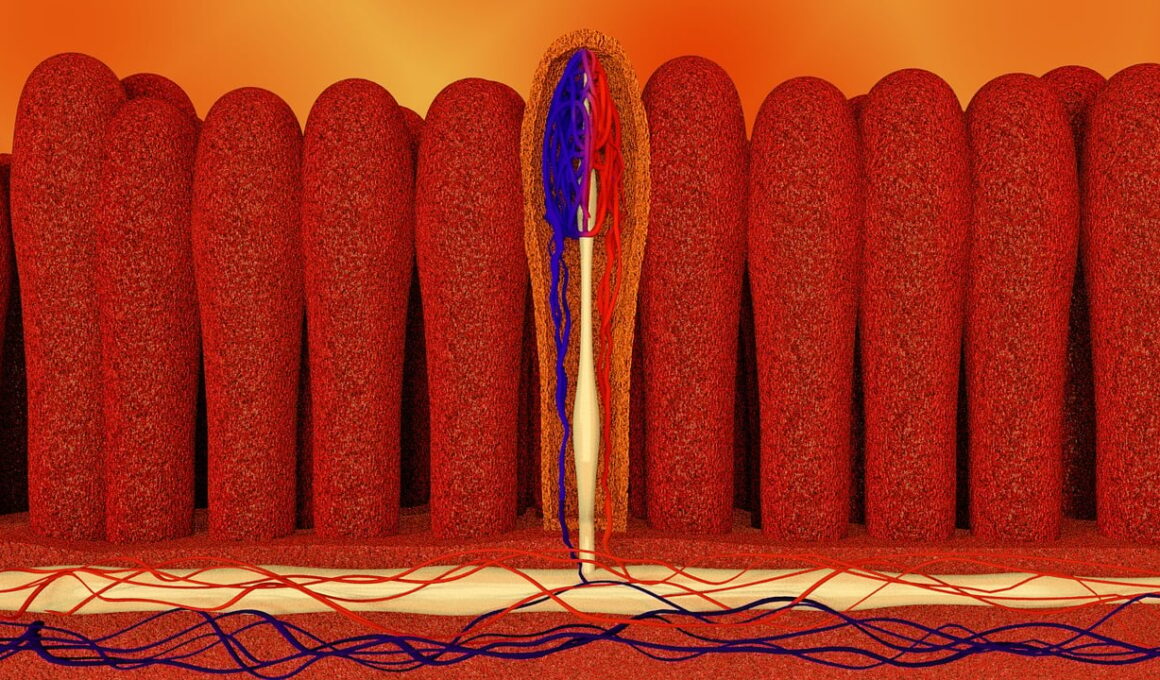Using Herbs and Spices to Enhance Nutrient Absorption
Nutrient absorption is essential for optimal health and well-being, often influenced by what we eat and how we prepare these foods. One effective way to enhance nutrient absorption is through the use of herbs and spices. These natural ingredients not only add flavor but also contribute numerous health benefits. Various herbs and spices contain active compounds that can improve the bioavailability of nutrients, especially when combined with certain foods. For example, using black pepper can enhance the absorption of curcumin, found in turmeric, by up to 2000%. This synergy allows the body to take full advantage of the nutrients consumed, maximizing the health benefits of our meals. Furthermore, the incorporation of herbs and spices can make meals more satisfying, reducing the need for unhealthy additives or excess salt. By being conscious of our choices in seasoning, we can further support our dietary goals. Overall, the combination of delicious flavors and improved nutrition makes the use of herbs and spices a simple and effective strategy in our daily eating habits. Embrace these natural enhancers in your cooking and experience their amazing effects.
Besides improving the absorption of specific nutrients, herbs and spices are rich in antioxidants, vitamins, and minerals. The various properties they possess can help fight inflammation and oxidative stress, which are linked to many chronic diseases. For instance, ginger is renowned for its anti-inflammatory properties, while oregano is packed with antioxidants. Both spices can serve as excellent additions to your diet for overall health support. When incorporating spices into your meals, consider their unique flavors and nutritional profiles. You can enhance your dishes with herbs such as basil, cilantro, or parsley, which can also provide vitamins and minerals. Furthermore, don’t overlook spices like cinnamon, which has been shown to help regulate blood sugar levels. Understanding the individual benefits of each herb and spice empowers you to make informed choices. Explore various recipes and find creative ways to include these ingredients in both savory and sweet dishes. The more diverse your use of herbs and spices, the broader your nutrient intake becomes, ultimately supporting health goals.
The Role of Cooking Methods
Cooking methods play a crucial role in nutrient retention and absorption, and combining them with herbs and spices can enhance their effectiveness. Certain techniques, such as steaming or sautéing, minimize nutrient loss, while slow cooking can help release flavors and bioactive compounds. For example, steaming vegetables before adding spices preserves vitamins and minerals, which may combine synergistically to enhance absorption. Additionally, marinating foods with garlic or onion before cooking can improve protein absorption while enhancing flavor. In contrast, boiling may lead to the loss of water-soluble vitamins. Therefore, consider the cooking method when adding herbs and spices to your meals to achieve the best results. Utilizing herbs and spices during cooking not only adds excitement to your dishes but also makes sure that you are maximizing the nutrients available in your food. Experimenting with different cooking methods can reveal how herbs and spices can elevate both taste and nutritional value.
Moreover, the consumption of fresh herbs versus dried ones may influence nutrient availability. Fresh herbs usually provide a more potent flavor and nutritional punch due to higher concentrations of important compounds. However, dried herbs are still effective and can offer convenience and longer shelf life in cooking. When using dried spices, consider using them at the beginning of cooking, while fresh herbs can be added towards the end to retain their volatile flavor compounds and nutrients. The choice between fresh and dried will impact not only taste but potentially nutrient absorption in meals. Therefore, stock both types in your kitchen to fully utilize them in various recipes. Knowing when to use fresh or dried herbs and spices can help you maximize their contributions to your dishes. Additionally, some combinations work best with specific ingredients, making it worthwhile to experiment with pairings, allowing for personal preference and optimal nutrition in everyday cooking.
Spice Pairing for Enhanced Benefits
An exciting aspect of enhancing nutrient absorption lies in the pairing of specific herbs and spices. Certain combinations can work together in synergy, enhancing each other’s effects and further improving nutrient absorption in meals. For example, the combination of turmeric and black pepper is prolific for health due to increased curcumin absorption. Similarly, the pairing of garlic with leafy greens elevates the body’s ability to absorb essential vitamins like A, E, and K. Consider trying herb and spice blends in your meals to benefit from natural flavor enhancements while maximizing nutrient intake. Create personalized spice mixes that suit your taste preferences and health interests. Whether it is curry blends or seasoning salt made from various dried herbs, experimenting provides opportunities to discover new flavors and health benefits. Not only does this make food more exciting, but it can also lead to improvements in overall nutrient absorption, helping you achieve better health outcomes. This approach enhances your culinary skills while showcasing the magical potential of cooking with herbs and spices.
Furthermore, mindful cooking and eating practices can also play a significant role. Engaging your senses while preparing and savoring meals not only increases enjoyment but could also enhance the absorption of nutrients. Taking the time to experiment with spices and herbs can improve your connection with food, leading to healthier choices and better understanding of nutrient absorption concepts. Cultivating mindfulness around cooking means paying closer attention to flavor profiles and how the ingredients interact with one another. This practice will help you recognize the potent properties of spices and herbs. Being aware of ingredient synergism fosters appreciation of the nutritional aspects of your meals. Additionally, enjoying your meals in a relaxed atmosphere can further improve digestion and nutrient absorption. Prioritizing quality meal times allows you to experience the depth of flavors created from herbs and spices. Building these healthy habits in your cooking routines will encourage you to continue focusing on nutrient-dense foods and seek to understand how best to incorporate them into delicious meals.
Conclusion
In conclusion, the incorporation of herbs and spices contributes significantly to the enhancement of nutrient absorption. Their unique properties not only provide flavor but also create health benefits that support overall wellness. Understanding the role of cooking methods, and the timing of adding spices can maximize nutrient retention in meals. Additionally, pairing spices for synergistic effects enhances absorption, creating a powerful impact on your health. Practicing mindfulness in cooking and eating habits further helps to underscore the importance of these natural flavor enhancers. By enriching your meals with an array of herbs and spices, you are creating a more nutritious and enjoyable eating experience. Make it a point to explore the vast world of flavors available through herbs and spices. Experiment with different combinations, learn about their nutritional properties, and don’t shy away from trying new recipes. Embracing herbs and spices into your diet promotes a clearer understanding of your nutritional goals while enhancing everyday cooking. With these guidelines in mind, you can make your meals flavorful and contribute positively to your health.


